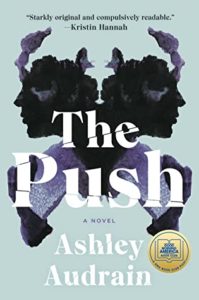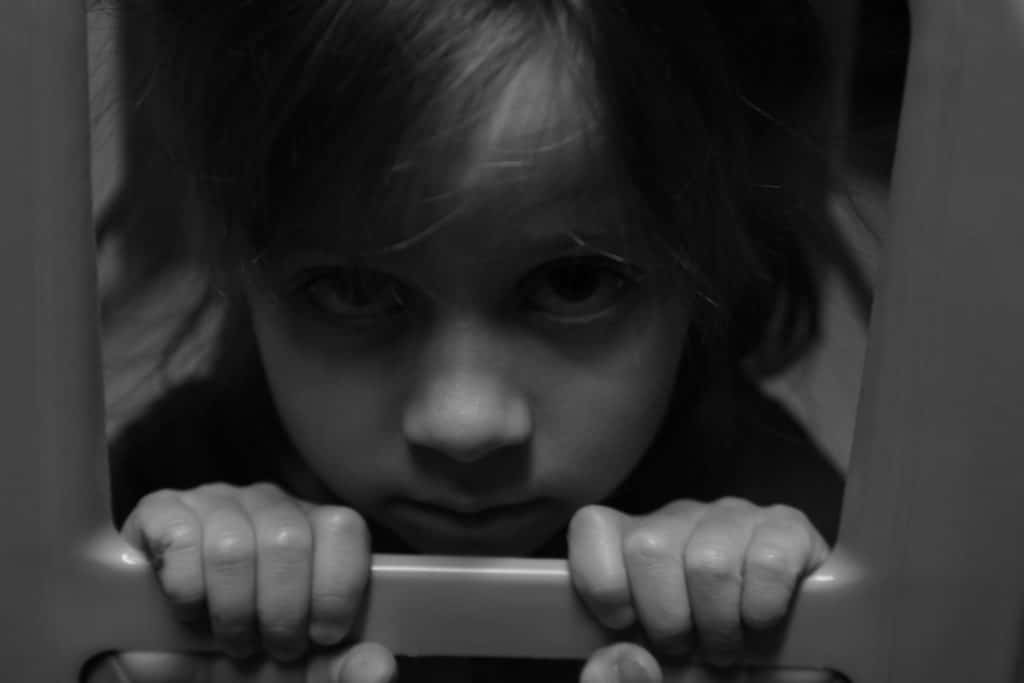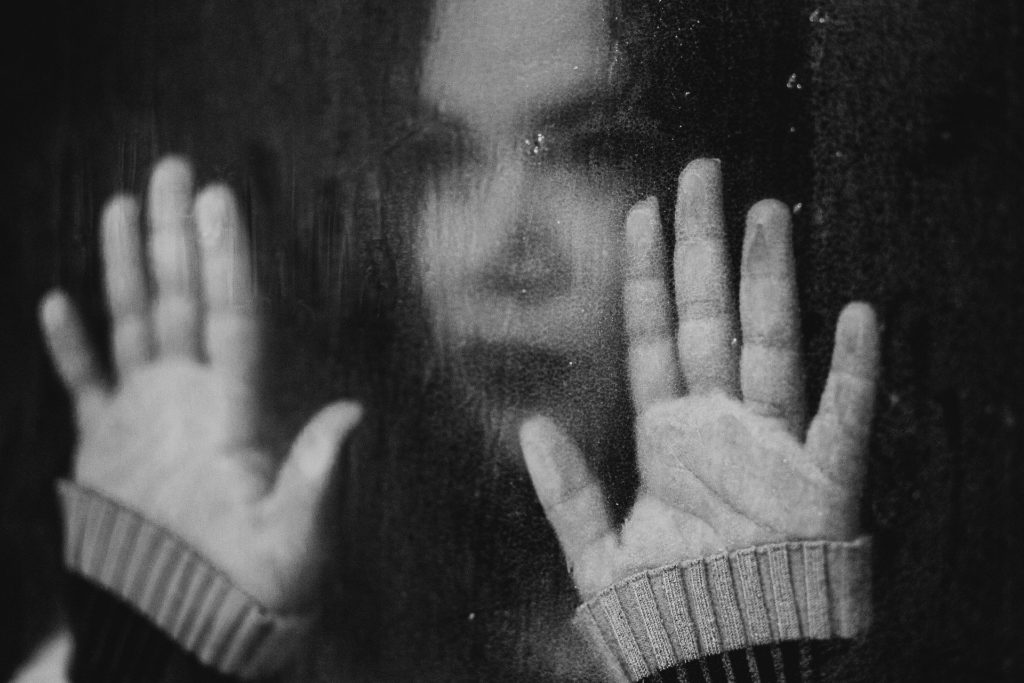 Evil Children or Abusive Parents?
Evil Children or Abusive Parents?
Author: Ashley Audrain
Blythe doesn’t want – doesn’t need – a baby. Her husband, Fox, insists that they have one. Blythe won’t become her abusive mother, he assures her, and a baby will only complete their love. Blythe loves her husband, loves her life, and despite her fears she agrees. What else can she do?
Enter the new baby: Violet. Fox is instantly in love, but Blythe resents the needy infant. Is her family’s long line of abuse rearing its ugliness in her? Is she truly a bad mother or is there something desperately wrong with Violet? When Blythe has her second baby, a perfect little boy, everything is just as dreamy as Fox promised. This can mean only one thing: the problem is Violet.
The Push is a novel in the vein of the Bad Seed concept, riffing heavily off of Zoje Stage’s Baby Teeth, right down to the oblivious father. The reviews I’ve read paint The Push as a portrait of an evil child, that rare aberration that haunts late night horror movies and worries at the back of our imagination. But I wonder . . .

Image by VVVladimirVVV from Pixabay
Blythe starts out as someone who is relatable. She has two levels of fear: 1) that she will become her abusive mother, who herself was abused by her own mother and 2), she will no longer have time for her writing, her husband, or for herself. These are valid fears, but our sympathy and connection ends when the baby is born. Blythe abuses Violet. It’s as simple as that, and she enjoys it. If you’re looking for a monster here, then it’s the mother. Blythe leaves her baby to cry for hours, deliberately ignoring her and relishing it. She tries to ignore and exile her infant as much as possible and even the stereotypical doofus of a husband recognizes that something is bad wrong. His gradual realization that his wife is abusive towards their helpless daughter and trying to involve him in the neglect drives a wedge between them. Blythe sees this dissolution of her marriage as a deliberate action caused by her daughter instead of the results of her inhuman cruelty. The hatred between mother and daughter deepens and sours.
When Blythe has a little boy everything changes. She becomes the doting mother that Fox had predicted. Insightful readers are left to consider the legacy of female against female violence in Blythe’s family, but our villainous protagonist sees this as further proof that Violet, now old enough to walk and talk and deliberately distance herself from her mother, is evil. In the ways of all self-fulfilling prophecies, this ends up being the case. Violet takes her revenge in the most traumatic way possible. Hint: if the truck scene in Pet Semetary left you emotionally scarred, then avoid this sordid tale at all costs. It’s a nature vs. nurture, chicken or egg question: was Violet born a monster or did her mother make her one?

Image by Kleiton Santos from Pixabay
The sympathies in the story – echoed widely through most of the reviews – are directed towards Blythe, and that is what disgusted me about an otherwise ok (albeit overdone) story. Having a villain as the central character is not the problem. Enabling and praising the villain, giving the monster a fake cloak of decency and asking us to champion it, is an entirely different thing. Hiding behind the veneer of a pro-woman, feminist discourse this narrative tries to twist around what is blatant child abuse. Any main character who leaves her hungry infant to cry for hours (HOURS!) and finds enjoyment in “winning” her husband’s attention this way is a monster not a sympathetic mirror for beleaguered mothers. Whether this vibe was an intentional part of the narrative or an echo back to the complicated lairs in Baby Teeth is hard to say. The effects of the story are much the same, however. It’s disturbing and not in that thoughtful, deeply emotional way. The Push is the type of story that makes you want to scrub out your mind with bleach and leaves you with a hatred for humanity and what we are all capable of at our most base level.
The story from a narrative standpoint (leaving out my emotions about the characters and talking purely structure, twists, and all that jazz) was ultimately unoriginal. It’s a re-hash of Baby Teeth and frankly not as good as the original blockbuster. If this is your type (genre?) of story, then The Push will probably leave you lukewarm. There is nothing new to see here, but there is plenty to get mad about.
– Frances Carden
Follow my reviews on Twitter at: https://twitter.com/xombie_mistress
Follow my reviews on Facebook at: https://www.facebook.com/FrancesReviews
[AMAZONPRODUCTS asin=”1984881663″]
- Book Vs Movie: The Shining - April 6, 2020
- Thankful For Great Cozy Mysteries - December 13, 2019
- Cozy Mysteries for a Perfect Fall - October 20, 2019


